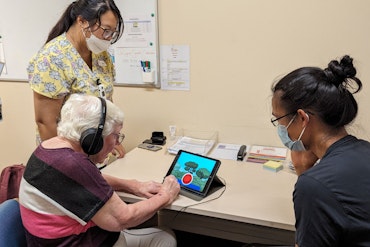The 40-page plan for palliative care reform in 2024 Federal Budget
Does Australia need to do more for palliative care in the upcoming Federal Budget?
![<p>Advocates believe that the key to improving palliative care in Australia is through Federal Budget reforms in 2024. [Source: Shutterstock]</p>](https://agedcareguide-assets.imgix.net/news/articles/wp/die22month__3101.jpg?fm=pjpg&format=auto&w=550&q=65)
Advocates believe that the key to improving palliative care in Australia is through Federal Budget reforms in 2024. [Source: Shutterstock]
Key points:
- Only 22 percent of the 61,100 patients who received palliative care in 2022 died at home
- Over 400,000 people used aged care services in Australia and more than 180,500 of those people lived in residential aged care
- Evidence suggests that 51 percent of all deaths require palliative care; some studies put the need for palliative care as high as 90 percent, which reflects Australia’s ageing population and growing levels of chronic disease
Peak advocacy group Palliative Care Australia has made its 40-page submission to the 2024 – 2025 Federal Budget which is set to be delivered in May, with representatives from PCA stating that it is a ‘[…] key moment in deepening current reforms across the health, aged care, cancer and disabilities sectors.’
PCA members in every state and territory have reported increasing numbers of people under 65 with a life-limiting illness this year, including those with disability, who are being refused access to the daily living supports they need to remain comfortably at home during the last phase of their life.
PCA Chief Executive Officer Camilla Rowland said every dollar invested in palliative care at home delivers a 100 percent return on investment — keeping people out of hospital and providing quality of life for people with life-limiting illnesses, their loved ones and carers.
“The actions we have outlined in our submission to the Health Minister and Treasury come from consultation with our members in every state and territory,” she said.
“We see this as a plan for meeting the increasing need for palliative care which is on track to double before 2050.
“Until a solution is found, those affected will often stay in hospital unnecessarily, unless they are able to fund basic services out of their own pocket or rely on loved ones, including children and young people, to step up and carry the load of caring.”
PCA also highlighted that proposed changes to the eligibility criteria for the NDIS may lead to some people being left without clarity, help and access to palliative care services.
“The ripple effects have a profound impact on the people affected and their loved ones,” Ms Rowland added.
“Recent discussions at National Cabinet suggest that Commonwealth and state and territory governments are aware of this growing problem. However, in the absence of firm solutions, vulnerable people will continue to miss out on vital services.”
At the centre of PCA’s submission is a new interim program of daily living supports for people under 65 with a life-limiting illness who want to remain at home. The estimated cost of the interim program is $77.6 million over three years, which is intended to prevent vulnerable people from slipping through the cracks during the Independent NDIS Review period.
The proposal also emphasised the need for people over the age of 65 to receive timely care at home, in addition to the continuation of the national Comprehensive Palliative Care in Aged Care measure, which advocates have characterised as successful.
“CPiAC is helping to embed palliative care within the aged care environment by linking palliative care services with people in residential aged care; avoiding unnecessary hospital transfers and admissions, but funding for CPiAC is due to run out in June this year,” Ms Rowland said.
The mid-term report from the national evaluation of CPCiAC by the Nous Group revealed that the program had delivered improved outcomes for people receiving palliative care in Australia.
PCA have directed support towards the continuation of the program, which is estimated to cost $33 million dollars on a federal level and be matched by states and territories over the course of three years.
The peak body has also called for the Federal Budget to direct funds toward after-hours palliative care and deliver an analysis of systemic gaps that could fail to deliver care for vulnerable people. The gap analysis is estimated to cost $300,000, according to the PCA submission.
“We see the first step in addressing that need is a gap analysis that would identify variabilities in service access and empower all levels of government and primary health providers to coordinate a response and design care pathways,” Ms Rowland said.
“Life-limiting illnesses like dementia, heart disease and cancer are the leading cause of death in Australia.
“70 percent of Australians say they would prefer to spend their final months and weeks at home. That is currently out for reach [sic] for most. PCA’s proposals would make it possible for many more people and deliver saving [sic] to the health and care systems.”
The PCA 2024 Budget submission is available online and will be considered by the Assistant Treasurer and Minister for Financial Services ahead of the May release.
Do you believe that palliative care is underfunded in Australia? Let the team at Talking Aged Care know and subscribe to the newsletter for more information, news and industry updates.
Related content:
What seniors need to know about the Australian Federal Budget (2023 – ‘24)























